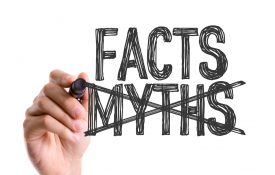-
If You Think Everyone Else Has More Friends, You’re Not Alone
NPR: When you feel like everyone around you is having more fun and spending more time with friends, it can make you feel bad about yourself — even if it's not true. But according to Ashley Whillans, an assistant professor at Harvard Business School who studies how our view of the world affects our view of ourselves, this perception can challenge us to become more social and make more friends. This fear of missing out on parties or events is actually very common. It may be particularly acute among college freshmen because "entering into university is one of the key transition points in your life in establishing your identity in a new social environment," Whillans says.
-
Apocalyptic Thoughts Amid Nature’s Chaos? You Could Be Forgiven
The New York Times: Vicious hurricanes all in a row, one having swamped Houston and another about to buzz through Florida after ripping up the Caribbean. Wildfires bursting out all over the West after a season of scorching hot temperatures and years of dryness. And late Thursday night, off the coast of Mexico, a monster of an earthquake. You could be forgiven for thinking apocalyptic thoughts, like the science fiction writer John Scalzi who, surveying the charred and flooded and shaken landscape, declared that this “sure as hell feels like the End Times are getting in a few dress rehearsals right about now.” ...
-
If You Want to Feel Better, Spend Money on Saving Time
The Wall Street Journal: People feel happier when they pay to save time than when they buy something nice for themselves. Those are the results we found in a series of recent studies. Spending on things like housecleaning services or grocery delivery left people feeling more satisfied than spending on things like new clothes and wine. The findings held true for people in different countries, and at different income levels. But we learned something else too: Even though people feel better when they spend money to free up time, they often don’t choose to do it. Read the whole story: The Wall Street Journal
-

‘Gender-Blind’ Thinking May Help Reduce Workplace Confidence Gap
Fostering gender-blind ideologies may offer one short-term aid as institutions continue to grapple with gender-parity issues.
-
Stanford researchers: The secret to overcoming the opioid crisis may be partly in the mind
The Washington Post: Chronic pain affects an estimated one in three Americans — more than cancer, heart disease, and diabetes combined. This widespread struggle has led to the wide use of pain medications, and a mounting national crisis of opioid addiction and deaths. It’s enough to make you wonder whether there’s a way that we can we help ourselves and our loved ones ease pain safely and effectively without becoming overly dependent on drugs. The good news is that there is – and it’s well within our grasp. Most people – including most physicians — think of pain as a physical symptom, but science reveals that emotions also play a big role.
-

Counterarguments Are Critical to Debunking Misinformation
To correct misinformation and “fake news,” you need to provide a detailed counter-message with new information.

